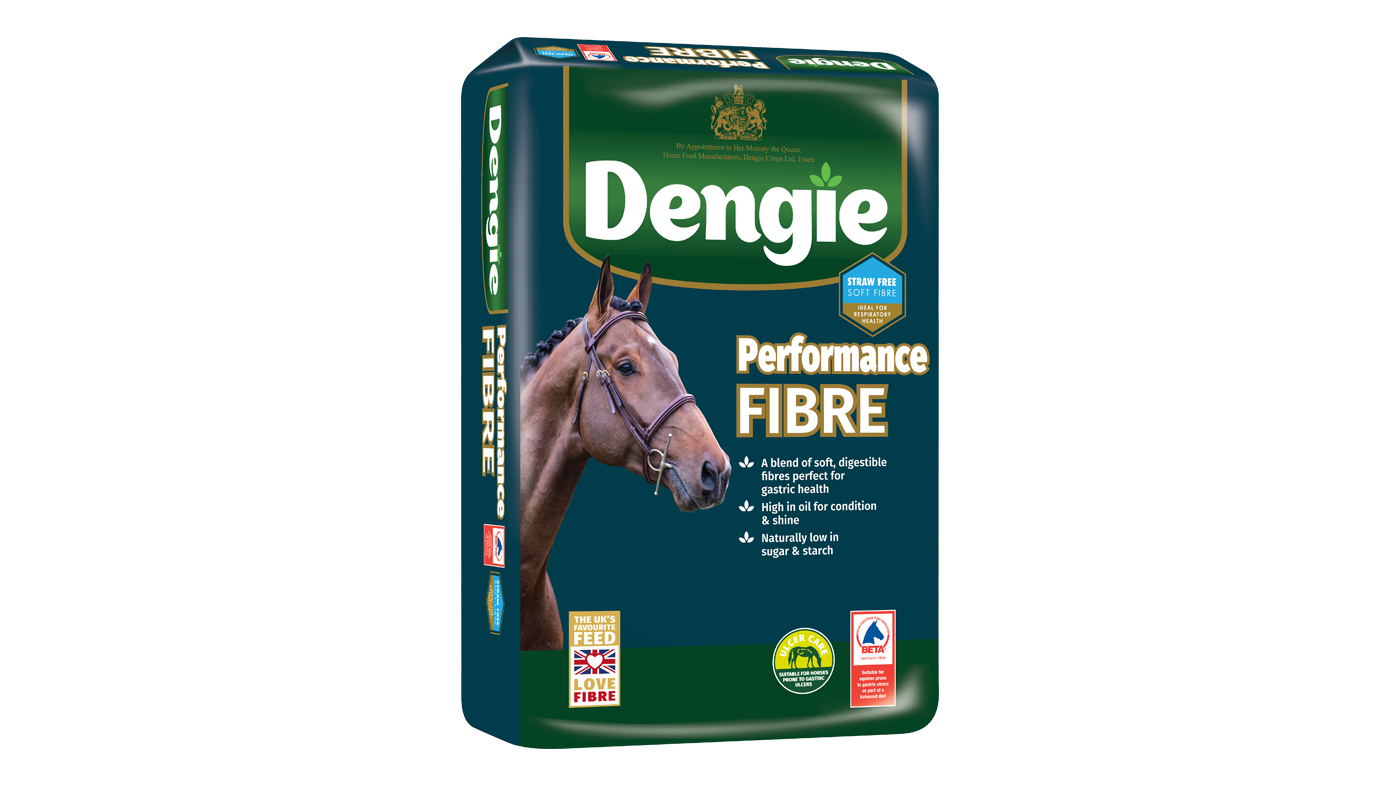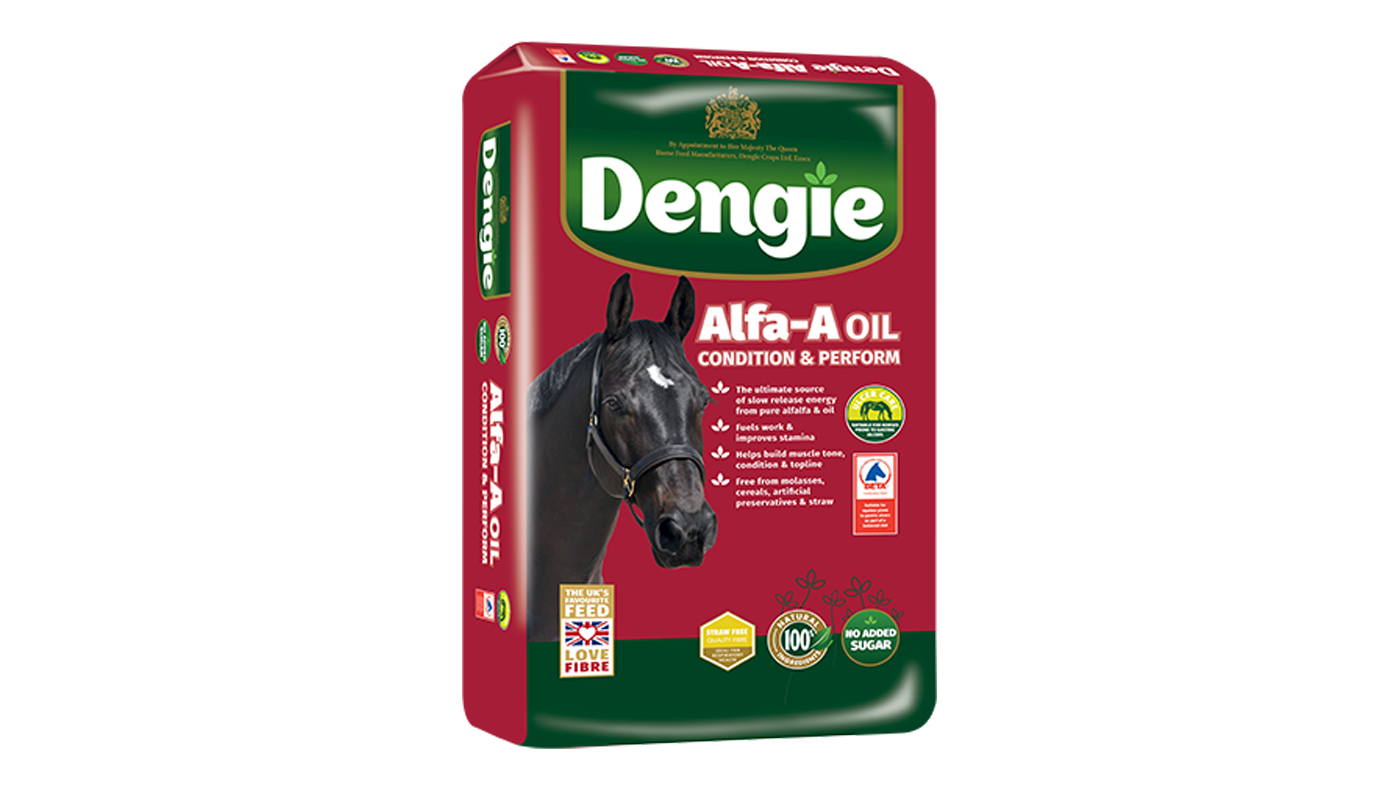Promotional feature with Dengie
Although nutrition is only one of many factors that influence competition success, it is a crucial component of finding the balance between health and performance. The unique aspects of training and competing inevitably result in challenges. Dengie highlights some of the most common nutrition-related problems for the competition horse with tips on how to manage them. Gastric Ulcers
Gastric Ulcers
- Alfalfa is naturally low in starch – but still provides a good level of energy, especially when combined with oil. Dengie Alfa-A Oil contains the same energy level as many performance mix or cubes, but with between five and 10 times less starch. Keeping starch levels low without compromising on energy intake is key for balancing health, condition and performance.
- Alfalfa is an effective buffer to acidity in the gut – alfalfa is abundant in calcium and studies have shown it buffers acidity more effectively than grass-based forages.
- Chopped alfalfa provides increased chew time, which increases saliva production – saliva contains bicarbonate, which also buffers acidity.
Feed chopped fibre before exercise to stop acid splash – using a double handful (200g) of Dengie Alfa-A Original or Alfa-A Oil just before exercise helps to form a fibrous mat to stop the acidic contents splashing around when the horse moves. - Omeprazole may reduce calcium absorption – this has been shown in humans and one study has indicated the same is occurring in horses. The calcium in alfalfa is highly bioavailable and so easier for the horse to absorb. Just 1 scoop of Dengie Alfa-A Original provides a 500kgs exercising horse with a fifth of their daily calcium requirement*.
*Based on NRC guidance for a 500kgs horse in exercise and a calcium level of 1.5% in alfalfa
Colic
Meal feeding has also been shown to result in transient dehydration in the gut. Researchers suggest that feeding a few large concentrate meals each day can cause sufficient dehydration in the colon to result in impaction, which could initiate other forms of very serious colic such as large colon displacement and volvulus.
Feeding strategies to reduce the risk of colic:
- Use feeds that are high in oil such as Dengie Alfa-A Oil or Performance Fibre as part of the bucket feed to reduce the reliance on cereal-based concentrates.
- Use more digestible sources of fibre, such as alfalfa and sugar beet, which are included in feeds like Dengie Alfa-Beet – as they are fed soaked they have the added benefit of taking water into the gut, thereby countering the potential dehydrating effect of feeding cereals in meals.
- Add fibre to slow the rate of intake and passage of cereal-based feeds through the gut.
- Limit concentrate meal sizes to 1.5kg dividing larger amounts of concentrates into three or four feeds daily.
Appetite Loss and Fussy Feeders
Tempting the fit, fussy performance horse is a particular challenge. If the horse takes a long time to eat up it doesn’t matter – they are trickle feeding as they would naturally. A problem exists if they won’t eat enough to maintain an acceptable bodyweight and condition and that’s when action is required. Feeding strategies for fussy feeders:
Feeding strategies for fussy feeders:
- Dengie Performance Fibre has been developed to try to tempt even the fussiest horse; the inclusion of grass and spearmint oil provide a natural sweetness and tempting flavour.
- Feeding several smaller meals can help avoid over-facing the horse.
- Offer a selection of different feeds for the horse to choose between – cafeteria style!
- Dampening the feed with Alfa-Beet can also help tempt fussy eaters, provide additional calories and aid hydration.

“Dengie Performance Fibre is the perfect blend of alfalfa with tasty grass. Adonis B is the ultimate fusspot, but he now asks for his dinner instead of turning his nose up!” says Anna Miller, dressage rider and trainer
Should you need further nutritional advice and support this competition season, contact our friendly feedline team on 01621 841188 or visit www.dengie.com where you can chat live with a qualified nutritionist. Or alternatively complete our Feed Advice Form.
References:





